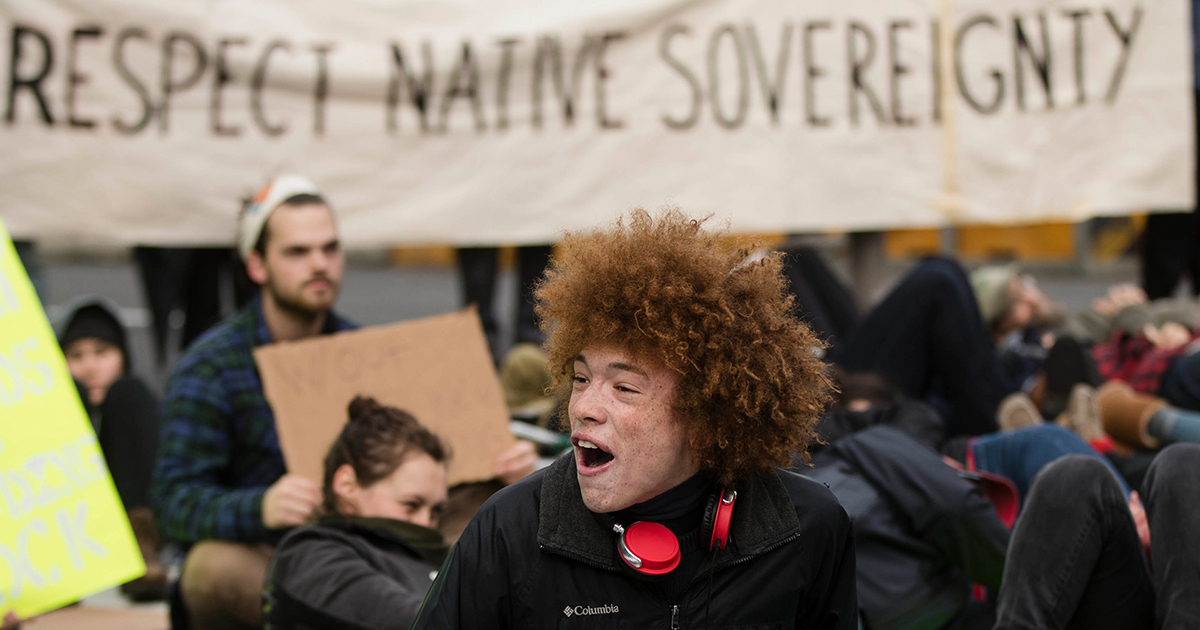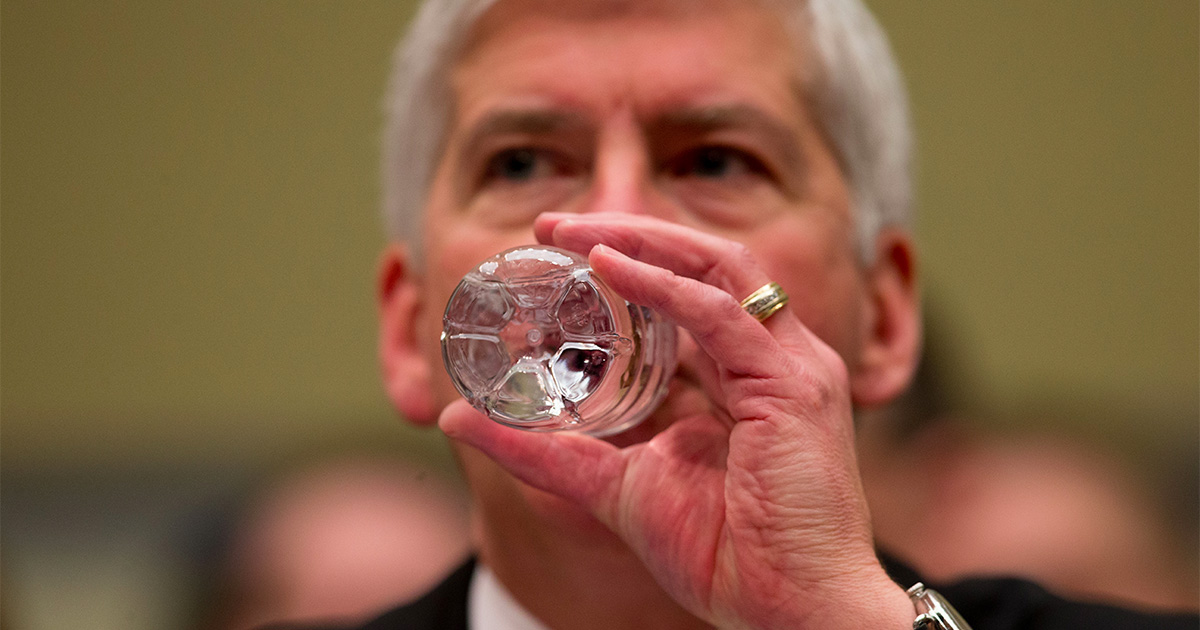Where the Standing Rock Veterans Are Going Next

By:
The thousands of veterans who came to protest the Dakota Access Pipeline may be headed to Flint, Michigan, to protest the water crisis.
An estimated 5,000 military veterans showed up to protest the construction of a nearly $4 billion four-state pipeline with a planned route near the Standing Rock Sioux reservation in North Dakota. The tribe, environmentalists and supporters said the pipeline would put the tribe's main source of water and sacred sites at risk.
The U.S Army Corps of Engineers halted construction of the pipeline Sunday.
However, that doesn't mean the veterans who protested Standing Rock are done with speaking out against social injustices.
On Monday, U.S. Army veteran and Standing Rock protest organizer Wesley Clark Jr. told mlive.com that the veterans will head to Flint next, which has been the site of an ongoing water crisis for the city's residents whose water supply has been contaminated with lead and bacteria.
However, when the veterans will head to Flint is still undecided.
ATTN: talked to Standing Rock organizer Michael Wood Jr. about the possibility of a veteran protest in Michigan.
The former police officer said that organizers probably wouldn't head to Flint for a few months.
"We're probably thinking spring time but we'll see how it plays out," the U.S. Marine veteran said. If organizers go to Michigan they will most likely raise money, again, for supplies but they don't have plans to do that yet.
"Right now, we're just trying to get everyone out of here alive," he said in regards to a blizzard they endured in North Dakota on Tuesday.
However, local advocates disagree on whether the veterans' protests will be effective in Flint.
 Getty Images/Brett Carlsen - gettyimages.com
Getty Images/Brett Carlsen - gettyimages.com
Frances Gilcreast, the president of the Flint branch of the NAACP told ATTN: that local and federal politicians have ignored protests for more than two years.
"We welcome anyone who will bring attention to our water situation, but they disregard protests," she said. "Protests don't mean anything to them because there's no leverage. They're already elected." Congress is finally considering giving funding to Flint in the Water Resources Development Act of 2016, a bill that would provide aid for Flint and also require the Department of Justice and the Environmental Protection Agency inspector general to give reports on the water crisis. However, Gilcreast said Flint almost wasn't included, at all. She and other advocates traveled to Washington, D.C., to lobby for Flint's inclusion in the bill.
 AP/Matt Rourke - apimages.com
AP/Matt Rourke - apimages.com
She is also concerned that large groups of protesters descending on Flint could spark violent protests in a community that's been largely peaceful so far.
"We don't want it to be an all out war," she said. "They've been real nice here in Flint considering their children have been poisoned for months and people wouldn't listen."
 AP/Andrew Harnik - apimages.com
AP/Andrew Harnik - apimages.com
However, Michael J. Steinberg, the legal director of te American Civil Liberties Union in Michigan, told ATTN: that the veteran protesters would "shine a light on the ongoing crisis." The state of Michigan is currently appealing a federal court decision that ordered the state to deliver bottled water to Flint residents.
"The state’s decision to appeal is, quite frankly, callous," said Steinberg. He added that both the Flint crisis and Standing Rock are civil rights issues.
"There’s no question in my mind that race and poverty play a role in water struggles around the country, whether we’re talking about Standing Rock or Flint," he said. "Had state officials poisoned the water supply of a predominantly white, wealthy community in Michigan, the officials likely would have been impeached and the problem would have been fixed by now."
